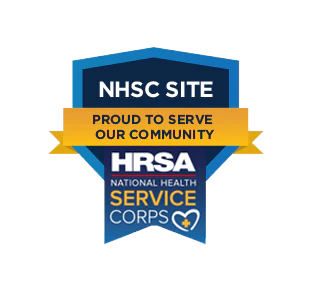The Importance of Work-Life Balance for Mental Health

- posted: Sep. 11, 2024
In today’s always-on culture, achieving a healthy work-life balance can feel like an impossible goal. Many of us struggle with overwork, which can lead to stress, burnout, and a decline in both physical and mental health. Maintaining a proper balance between work and personal life is essential for overall well-being.
Why Work-Life Balance Matters
Work-life balance is not just about spending equal amounts of time on work and leisure; it's about finding a sustainable way to manage both. According to the World Health Organization (WHO), long working hours increase the risk of heart disease, stroke, and mental health conditions like depression and anxiety . Prolonged exposure to work-related stress also affects productivity and creativity, making it harder to perform well in professional roles.
Strategies for Creating Work-Life Balance
Set Clear Boundaries: Establishing firm boundaries between work and home life is crucial. This could mean setting a strict work schedule and turning off work notifications after hours. Research from the Harvard Business Review shows that employees who set and maintain boundaries experience less work-related stress and greater job satisfaction .
Prioritize Self-Care: Self-care is not just a luxury; it’s a necessity. Regular exercise, hobbies, and relaxation can improve your mental and physical health. A study published in the Journal of Occupational Health Psychology found that workers who engaged in self-care activities outside of work were more resilient and better able to manage workplace stress .
Delegate and Say No: Learning to delegate tasks at work and say "no" to additional responsibilities can reduce your workload and help you avoid burnout. Setting realistic goals and managing expectations are key components of a balanced life.
Unplug Regularly: Taking time to disconnect from work, especially in our digital age, is essential for mental clarity and relaxation. The American Psychological Association recommends regularly unplugging from digital devices to reduce stress and maintain a healthy work-life balance.
If you're struggling to find the right balance between work and life, professional guidance can help. Allied Wellness Collective offers counseling services to help individuals manage work stress, set boundaries, and find personal fulfillment. Contact us today to begin your journey toward a healthier work-life balance.
Sources
World Health Organization. (2021). Long working hours and health risks. Retrieved from https://www.who.int/news-room/fact-sheets/detail/long-working-hours-and-health
Harvard Business Review. (2018). How setting boundaries improves work satisfaction. Retrieved from https://hbr.org/2018/05/how-setting-boundaries-improves-work-satisfaction
Journal of Occupational Health Psychology. (2020). The role of self-care in workplace stress management. Retrieved from https://doi.org/10.1037/ocp0000288
American Psychological Association. (2019). The importance of unplugging for mental health. Retrieved from https://www.apa.org/topics/stress/unplugging

- posted: Sep. 11, 2024
In today’s always-on culture, achieving a healthy work-life balance can feel like an impossible goal. Many of us struggle with overwork, which can lead to stress, burnout, and a decline in both physical and mental health. Maintaining a proper balance between work and personal life is essential for overall well-being.
Why Work-Life Balance Matters
Work-life balance is not just about spending equal amounts of time on work and leisure; it's about finding a sustainable way to manage both. According to the World Health Organization (WHO), long working hours increase the risk of heart disease, stroke, and mental health conditions like depression and anxiety . Prolonged exposure to work-related stress also affects productivity and creativity, making it harder to perform well in professional roles.
Strategies for Creating Work-Life Balance
Set Clear Boundaries: Establishing firm boundaries between work and home life is crucial. This could mean setting a strict work schedule and turning off work notifications after hours. Research from the Harvard Business Review shows that employees who set and maintain boundaries experience less work-related stress and greater job satisfaction .
Prioritize Self-Care: Self-care is not just a luxury; it’s a necessity. Regular exercise, hobbies, and relaxation can improve your mental and physical health. A study published in the Journal of Occupational Health Psychology found that workers who engaged in self-care activities outside of work were more resilient and better able to manage workplace stress .
Delegate and Say No: Learning to delegate tasks at work and say "no" to additional responsibilities can reduce your workload and help you avoid burnout. Setting realistic goals and managing expectations are key components of a balanced life.
Unplug Regularly: Taking time to disconnect from work, especially in our digital age, is essential for mental clarity and relaxation. The American Psychological Association recommends regularly unplugging from digital devices to reduce stress and maintain a healthy work-life balance.
If you're struggling to find the right balance between work and life, professional guidance can help. Allied Wellness Collective offers counseling services to help individuals manage work stress, set boundaries, and find personal fulfillment. Contact us today to begin your journey toward a healthier work-life balance.
Sources
World Health Organization. (2021). Long working hours and health risks. Retrieved from https://www.who.int/news-room/fact-sheets/detail/long-working-hours-and-health
Harvard Business Review. (2018). How setting boundaries improves work satisfaction. Retrieved from https://hbr.org/2018/05/how-setting-boundaries-improves-work-satisfaction
Journal of Occupational Health Psychology. (2020). The role of self-care in workplace stress management. Retrieved from https://doi.org/10.1037/ocp0000288
American Psychological Association. (2019). The importance of unplugging for mental health. Retrieved from https://www.apa.org/topics/stress/unplugging





